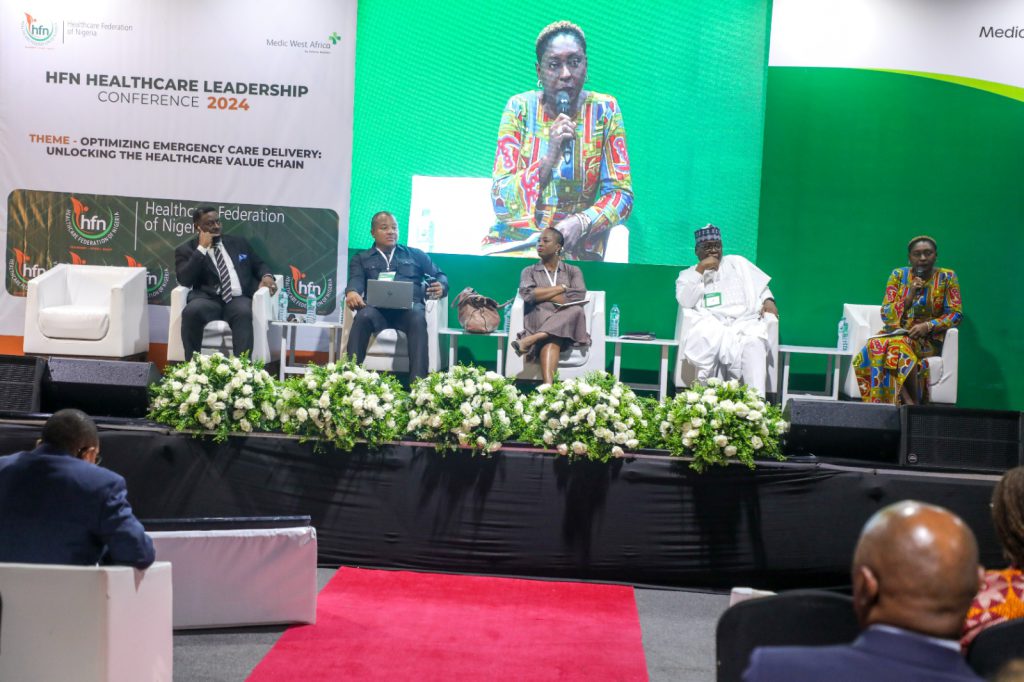The Federal Government is strengthening its partnership with the private sector to revamp Nigeria’s healthcare system, recognizing this collaboration as essential to achieving Universal Health Coverage (UHC), according to the Coordinating Minister of Health and Social Welfare, Prof. Ali Pate.
Prof. Pate highlighted the importance of public-private partnerships (PPP) in tackling critical healthcare challenges, including inadequate infrastructure, limited access to essential services, and a shortage of healthcare professionals. He made these remarks during a national dialogue on the collaborative implementation of the Sector-Wide Approach (SWAp) in healthcare, organized by the Health Federation of Nigeria (HFN) and PharmAccess, in Abuja on Wednesday.
The dialogue brought together government officials, healthcare leaders, and international experts to explore ways to foster public-private collaboration in healthcare transformation. Among the key attendees were the Minister of State for Health and Social Welfare, Tunji Alausa, Chairman of the House Committee on Health Institutions, Hon. Amos Magaji, Director of Digital Transformations for Health (DTH) Lab, Prof. Ilona Kickbusch, President of the UNITE Parliamentarians Network for Global Health and CEO of HealthAI, Ricardo Baptista Leite, Director of Health Systems at PharmAccess Amsterdam, Kwasi Boahene, and PharmAccess Nigeria Country Director, Njide Ndili.
During his address, Prof. Pate emphasized the need for cooperative efforts between government and private stakeholders to drive innovation, reduce costs, and enhance healthcare delivery. “Public-private partnerships are essential to realizing the health sector we aspire to,” he said.
In his keynote address, Minister of State for Health, Tunji Alausa, outlined the government’s multi-pillar strategy for reforming the healthcare sector. He emphasized the importance of leveraging accurate health data to inform policy decisions and called for a unified approach to healthcare governance. “We must harness technology and data analytics to improve health outcomes across the nation,” Alausa stated.
Ricardo Baptista Leite, in his presentation on the future of healthcare, stressed the need for a proactive, preventive approach, urging a shift from reactive ‘disease systems’ to systems focused on well-being, quality of life, and better outcomes for all. He also emphasized the need for sustainable funding and the incorporation of artificial intelligence, effective policies, and impactful investments in the healthcare sector.
Prof. Ilona Kickbusch, Director of Digital Transformations for Health (DTH) Lab, advocated for a comprehensive digital health transformation that prioritizes youth engagement, addresses the digital divide, promotes mental health, and ensures robust governance in the digital era. “Digital technology is not only a tool for enhancing healthcare delivery but also a new determinant of health,” Kickbusch said. She also highlighted the importance of involving young people in shaping Nigeria’s digital health landscape, especially given that over half of the population is under 19.
In her welcome address, HFN President, Pamela Ajayi, emphasized the significance of policy dialogues like this one to address urgent healthcare challenges. “This dialogue provides an essential platform for the private sector to engage with policymakers,” she noted, underlining the importance of the Sector-Wide Approach (SWAp) in aligning development efforts with national healthcare priorities.
The event featured three panels, each focused on addressing the key healthcare challenges facing Nigeria and offering practical solutions for improving the nation’s healthcare delivery system.




